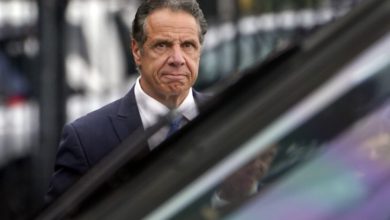

There's been an ongoing fight in Ohio ever since the first stay-at-home order was issued: Should commuters pay income taxes to the cities where they no longer physically worked?
The cities said yes. A conservative group called the Buckeye Institute said no. And now three justices from Ohio’s Tenth District Court of Appeals will decide who's right.
Ohio law lets local governments like cities tax the people who live and work within their borders. The idea being that people who work there should help pay for the services they use like sidewalks, roads, police and ambulances.
And cities are pretty dependent on this kind of tax.
For example, Ohio's six largest cities (Cleveland, Columbus, Cincinnati, Akron, Toledo and Dayton) get about 88% of their revenue from income taxes and a substantial portion of that comes from commuters.
"Cities across the state stand to lose a massive amount of tax revenue," Columbus City Attorney Zach Klein said in a statement back when the lawsuit was first filed in July 2020.
That's why state lawmakers passed a bill during the shutdown that let municipalities continue collecting taxes from these former commuters until the governor ended Ohio's state of emergency.
They later changed their minds and decided Ohioans could see refunds for the days they worked from home in 2021 but not 2020.
The big legal question
The Buckeye Institute was pleased with the legislature's decision about 2021, attorney Jay Carson said. But he still believes thousands of Ohioans are owed money back for 2020.
"We would submit that if the General Assembly wants to help cities there are numerous constitutional routes they could take to do that," Carson said.
But letting cities tax people who neither live nor work within their borders isn't one of them. He argued that what lawmakers passed in March of 2020 violated the state constitution and should be repealed by the court on principle.
"The city has to have some kind of jurisdictional hook," Carson said.
A Franklin County judge disagreed.
"Simply put, the Ohio General Assembly has long regulated municipal taxing authority," Judge Carl Aveni wrote in his April decision.
And that's the argument Diane Menashe, the attorney for Columbus City Auditor Megan Kilgore, made.
She argued state lawmakers simply extended an existing concept in state law that lets employees work outside the principal place of work for certain periods of time while still paying municipal income taxes.
"It was meant to maintain the status quo during a time of chaos," Menashe said.
What happens now?
The three justices who heard the case Wednesday will have to come up with a ruling, which could be handed down next week or next year.
"Usually it takes about three to six months," Carson said. "But you never know."
Both sides have made it clear they will appeal if the ruling doesn't go their way, which could mean this case is headed for the Ohio Supreme Court.
It's also not the only lawsuit currently working its way through the system. The Buckeye Institute has appealed a similar case in Hamilton County. And it's got two more pending in other parts of the state.
In other words, anyone hoping to get a refund on their 2020 municipal income taxes should be prepared to wait.
Anna Staver is a reporter for the USA TODAY Network Ohio Bureau, which serves the Columbus Dispatch, Cincinnati Enquirer, Akron Beacon Journal and 18 other affiliated news organizations across Ohio.
Source link






